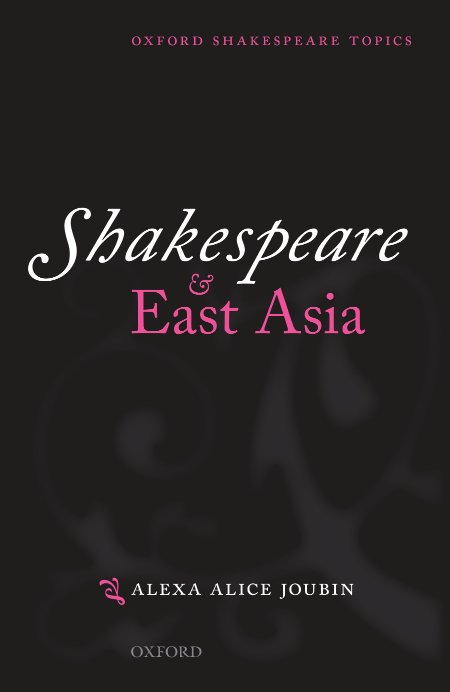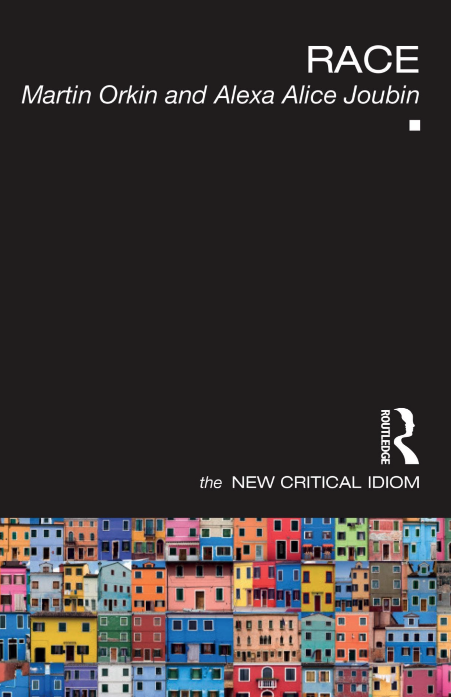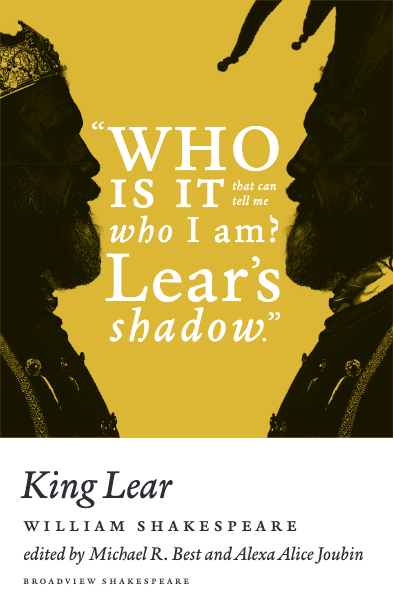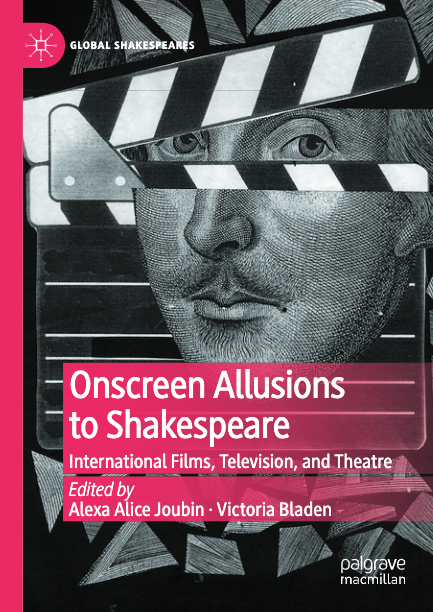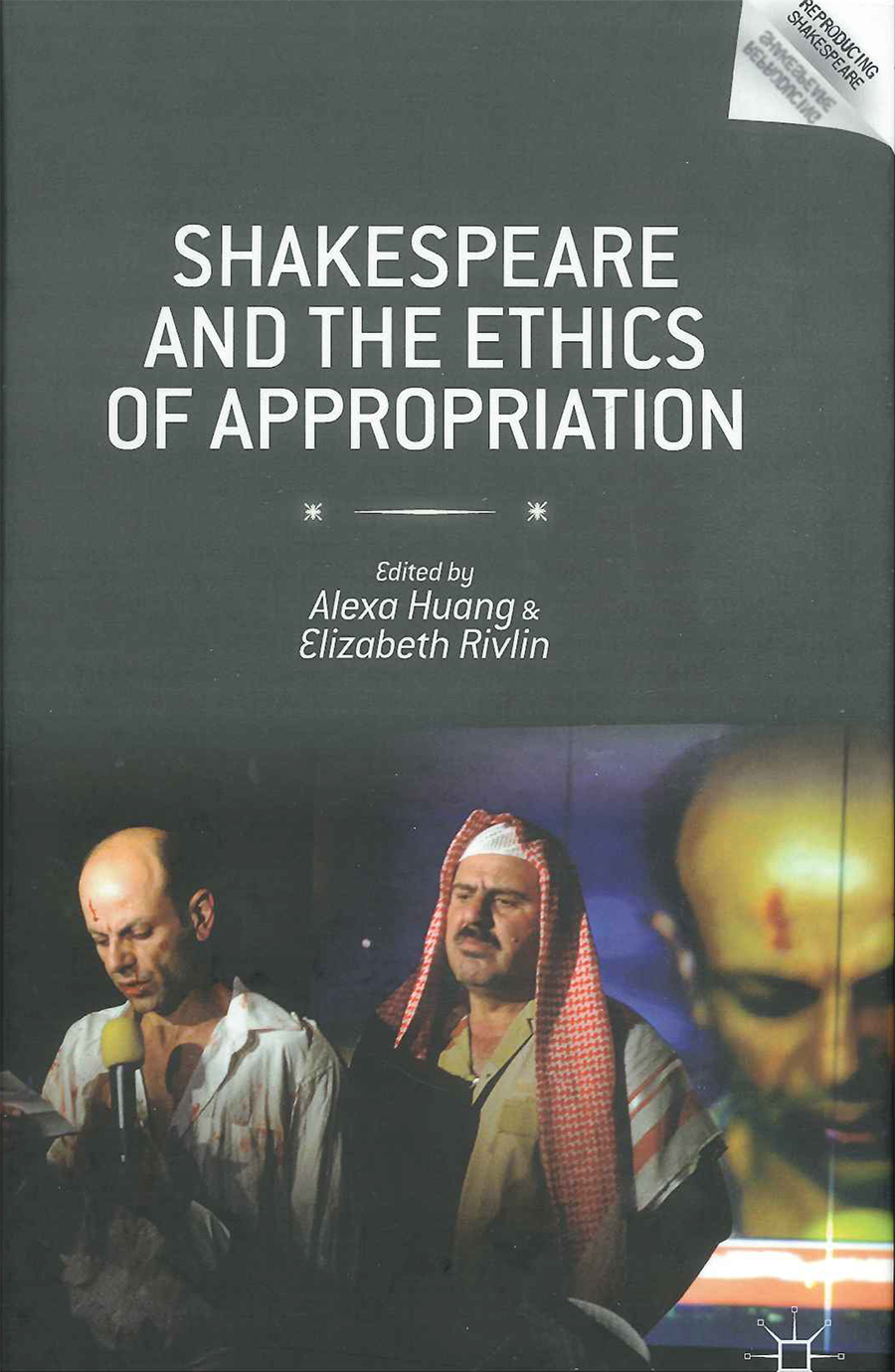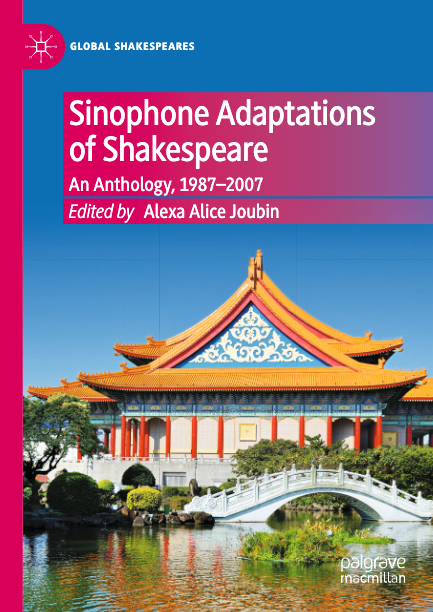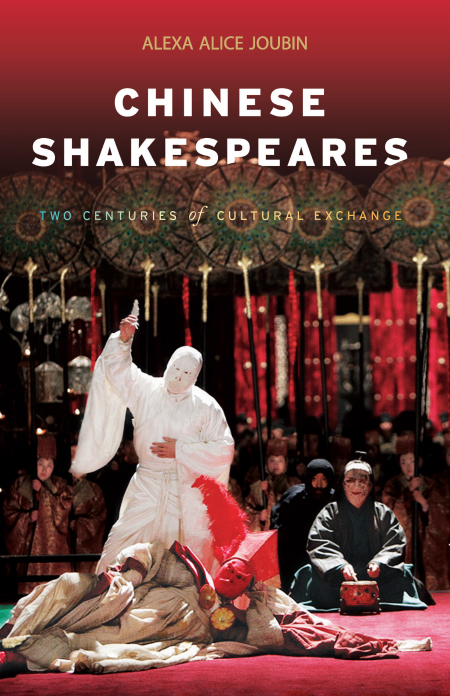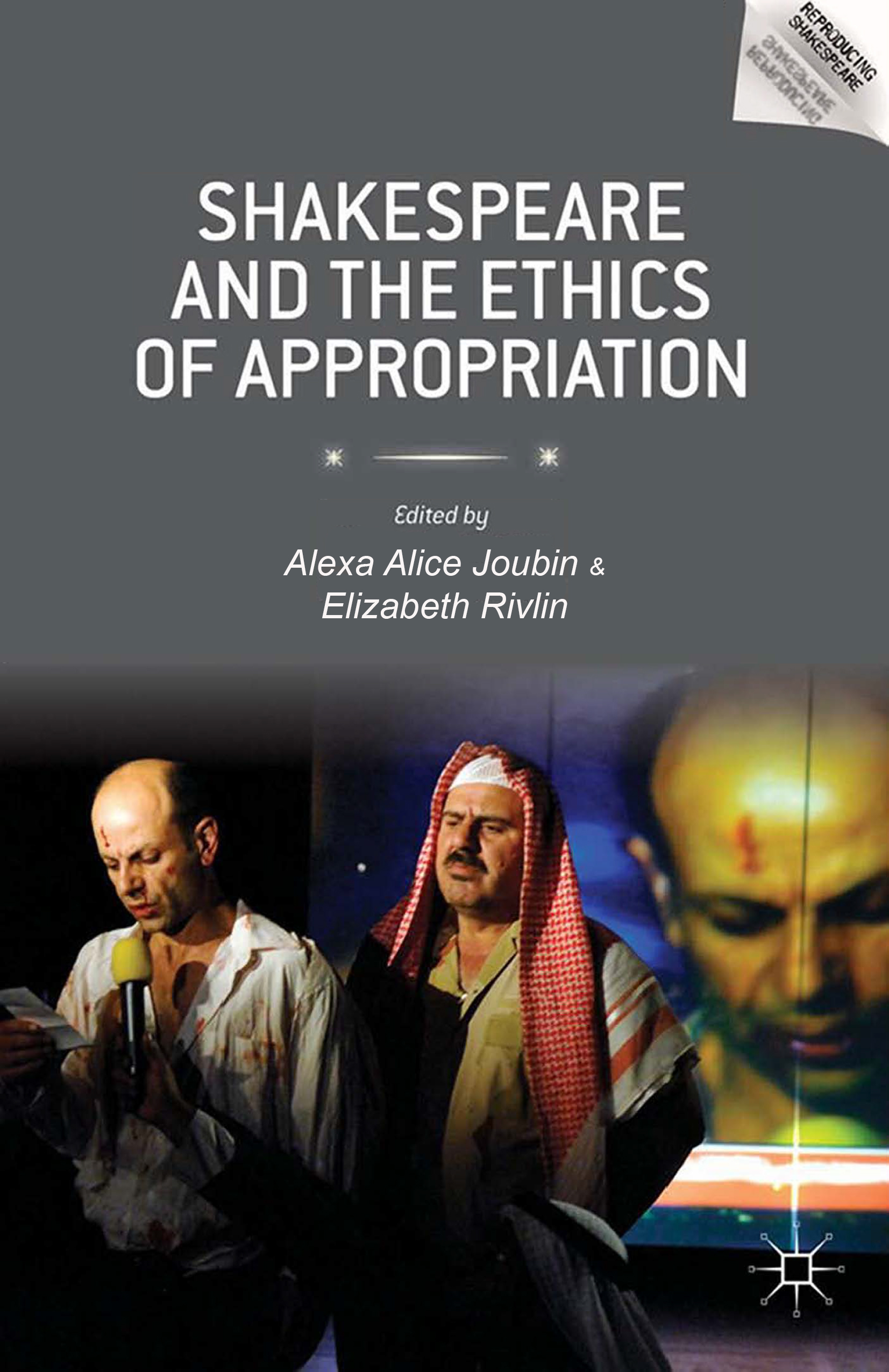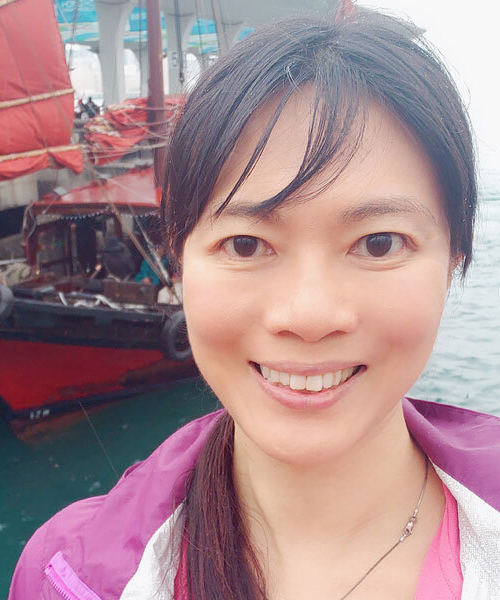Alexa Alice Joubin (name pronunciation) is the inaugural recipient of the bell hooks Legacy Award and holder of the Martin Luther King, Jr. Award. She writes about artificial intelligence (AI), race, gender, cultural globalization, Shakespeare, disability, and film and theatre. She teaches in the Departments of English, Women's, Gender and Sexuality Studies, Theatre, International Affairs, University Honors Program, and East Asian Languages and Literatures at George Washington University in Washington, D.C., where she serves as founding Co-director of the Digital Humanities Institute and the Co-director the Taiwan Education and Research Program (Sigur Center for Asian Studies). She is a faculty of the GW Trustworthy AI Initiative (her Digital Humanities Institute is a partner program of TAI). She is also an affiliate at the NSF's Institute for Trustworthy AI in Law & Society (TRAILS). In 2024, she was named the inaugural Public Interest Technology Scholar (news story).
Writer
In 2023, Alexa is named the inaugural recipient of the bell hooks Legacy Award which recognizes her achievements in research, teaching, and service, particularly her efforts to “dismantle intersectional systems of oppression with the distinct goals of uplifting members of historically marginalized populations and striving for social justice,” through her “groundbreaking work that speaks to our moment in history and our hope for the future” and her public humanities work, use of generative AI tools as assistive technology in class, open-access publications (such as Screening Shakespeare), and inclusive pedagogies.
The recipient of the Modern Language Association's Scaglione Prize for Comparative Literary Studies and George Washington University's Trachtenberg Research Award, an honor established by the President Emeritus, she is the author of Shakespeare and East Asia (Oxford University Press, 2021), co-author of Race (with Martin Orkin, Routledge, 2018), editor-in-chief of The Palgrave Encyclopedia of Global Shakespeare, general editor of The Shakespearean International Yearbook (a peer-reviewed annual publication), editor of Contemporary Readings in Global Performances of Shakespeare (2024), editor and translator of Sinophone Adaptations of Shakespeare: An Anthology, 1987-2007, which was published in 2022, and co-editor of King Lear (Broadview, 2023), Onscreen Allusions to Shakespeare (2022), Local and Global Myths in Shakespearean Performance (2018) and Shakespeare and the Ethics of Appropriation (2014), book review editor of Chinese Literature and Thought Today, and editor of the Palgrave book series on Global Shakespeares.
In her leadership and editorial roles, she has featured diverse voices and launched the careers of junior and minority researchers in the US, Canada, the UK, Brazil, Turkey, Kuwait, Taiwan, and South Korea.
For instance, she serves on the editorial or advisory board of several journals, publishers, and digital projects, including Renaissance Drama (University of Chicago Press), SHAKSPER (a forum founded in 1992), and Fundación Shakespeare Argentina. She is a founding executive board member of the Asian Shakespeare Association.
Access and equity are key themes in Alexa's work, including her analyses of the latest generative AI technologies. As the chair of the Modern Language Association committee on the New Variorum Edition of Shakespeare, she oversaw the publication budget and helped to bring the edition that was founded in 1860 into the digital era by releasing the full XML files as open-access resources. She has also chaired other MLA committees, including the Prize for an Edited Collection Selection Committee and the executive committee on East Asia. As the chair of the Shakespeare Association of America's Shakespeare Publics Award committee, she has worked to recognize pioneering efforts to sustain broad and diverse Shakespeare publics through activism.
Her writing has been supported by fellowships and grants from the Fulbright Distinguished Chairs Program, Renaissance Society of America, American Council of Learned Societies, Folger Institute, Stiftung Mercator (Germany), Canada's Social Sciences and Humanities Research Council, and other organizations.
Educator
An award-winning teacher, Alexa's goal is to ensure equal access to knowledge and to further our understanding race and gender in the mobility of early modern and postmodern cultures in their literary, performative, and digital forms of expression.
She has received the 2022 Writing in the Disciplines Distinguished Assignment Design Award as well as grants for course development, such as the 2021 Online Course Development grant and the 2022 Adapting Course Materials for Equity Faculty Grant (impact of the project) which enables her to create openly licensed textbook with open-access online interactive learning modules: Screening Shakespeare. The web-based companion can be used by anyone to teach students how to analyze films, particularly the themes of race and gender in Shakespeare films (news story).
At George Washington University, she co-founded the Digital Humanities Institute to foster a new campus culture that increases STEM students’ engagement in the humanities and humanities majors’ digital literacy.
In recognition of her work on generative AI and contribution to public interest technology, George Washington University Office of the Vice Provost for Research named her the 2024 Public Interest Technology Scholar. In her ambassadorial role, she will foster university-wide collaboration on building open education resources (OER) and deploying trustworthy artificial intelligence in higher education. She is also a faculty affiliate at the National Science Foundation's Institute for Trustworthy AI in Law & Society (TRAILS).
She co-directs the University's Taiwan Education and Research Program which operates within the Elliott School of International Affairs. She also holds affiliate appointments in the Institute for Korean Studies and the Sigur Center for Asian Studies.
As the general performance editor of the Internet Shakespeare Editions (an open-access, peer-reviewed project founded at the University of Victoria, Canada, in 1996), she expanded the database’s multimedia collection and enhanced its pedagogical value. She established a new collaborative structure of regional editors and a new structure for metadata to better account for such ephemera as playbills.
At the Massachusetts Institute of Technology, she is Research Affiliate in Literature and the founding co-director of MIT Global Shakespeares, an open-access performance video archive funded by the Mellon Foundation. Through that open-access project, she has spotlighted artistic and academic works by people of color, created undergraduate and doctoral internships and research positions in digital publishing, and enabled students, artists, and researchers to access primary research materials freely. (Read a review of the digital project here.)
Beyond Washington, D.C., she holds the John M. Kirk, Jr. Chair in Medieval and Renaissance Literature at Middlebury College's Bread Loaf School of English, and has taught at the Middlebury College Summer Institute in Global Humanities in Monterey, California. She is an affiliate of the University of Witwatersrand's Tsikinya-Chaka Centre in Johannesburg, South Africa.
She has served as distinguished visiting professor at the University of Alberta, Edmonton, Canada (news story; highlight; list of events); University of Essex in the UK; Yonsei University and Seoul National University in South Korea; and Beijing Normal University and Shandong University in China.
She held the Fulbright Distinguished Chair in Global Shakespeare Studies at Queen Mary University of London and the University of Warwick in the UK. She currently serves as a Fulbright Ambassador.
Advocacy Speaker
Alexa Alice Joubin received the Martin Luther King, Jr. Award which is described by the Office of the Vice Provost for Student Affairs as “George Washington University’s most prestigious recognition of excellence" which recognizes her “efforts to promote diversity, equity, and inclusion on campus and in the Washington metropolitan area with passion, care, integrity, and empathy.”
In her outreach work as a public humanist, Alexa has given a congressional briefing on the humanities and globalization on Capitol Hill and a TEDx Fulbright talk, been interviewed by the BBC, The Economist, NPR, The Washington Post. She has been a frequent contributor to various media platforms and news outlets. She has done advocacy work through the US Department of State and Department of Education.
During her tenure as Vice President of the Association for Asian Performance, the oldest scholarly organization dedicated to the study of Asian performance, and as Vice President of the Mid-Atlantic Region Association for Asian Studies, (MARAAS), she has helped to enhance the diversity of the organizations' membership, workshop offerings, and conference programming.
She also served as an advisor in the U.S. Department of Education's Ronald E. McNair Postbaccalaureate Achievement Program that prepares low-income, first-generation undergraduate students for doctoral study.
Social justice and diversity are key components of Alexa's teaching, research, and service. As a faculty senator, Alexa has been involved in a number of initiatives to foster more inclusive representation of racialized minorities. She has directed the Dean’s Scholars in Shakespeare, a signature program in the Columbian College of Arts and Sciences that played a key role in student recruitment and retention. In the English department, she has served as the director of graduate studies, director of the MA program, and graduate job placement officer.
She co-chairs the Women's Affinity Group, a group led and facilitated by staff and faculty formed around interests, backgrounds, identities, and experiences. Through participation in an affinity group, staff, and faculty help foster a community of belonging.
She has brought her expertise in digital humanities to serve her campus as a Columbian College of Arts and Sciences Faculty Leadership Fellow in 2023 (pilot study on AI in higher education) and as a member of the University Strategic Planning Committee for Online Education, Digital Scholarship Center planning committee, the Institute for Advanced Study of Cultural Heritage Planning Committee, the Advisory Council for Global Humanities, the Vice Provost for Teaching and Learning’s Task Force on Digital Literacy and Multimedia Writing, the Columbia College of Arts and Sciences research advisory committee, and others.
